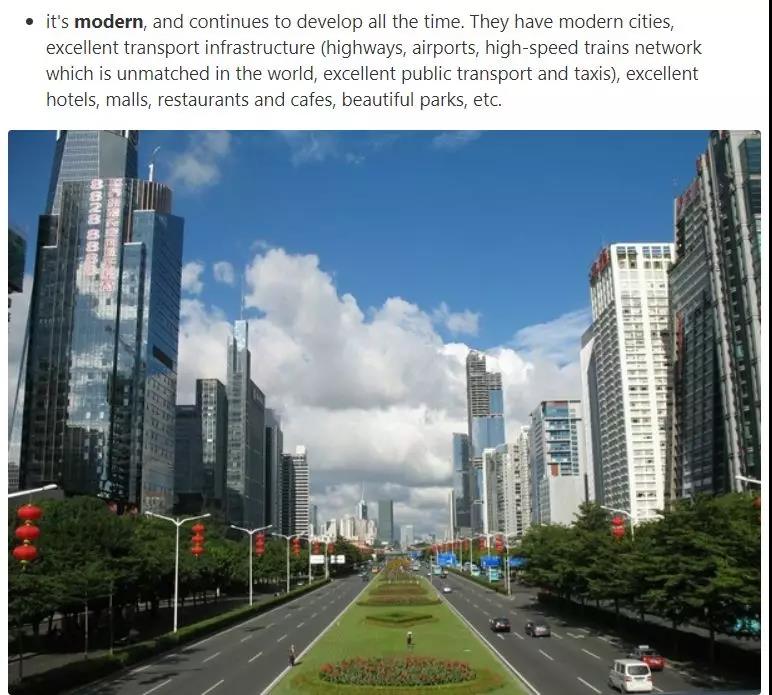Current Location:Home > NEWS > > Reverse Culture Shock... Going Home
source:Teach Abroad time:2020-01-06 10:57:54 read:5500

As
an ESL teacher you’re more than likely have been
given advice, both well-meaning and strident, about adapting to life in China.
In fact, here at Echo, it’s been one of our main
responsibilities. We take it upon ourselves very early on in the application
process to introduce teachers to cultural differences abroad, forewarn about
the realities on the ground and best prepare our candidates for a new
adventure. Many teachers have written blogs or published well-edited vlogs.
There are plenty of ESL online teaching groups and expat forums where advice is
always plentiful and forthcoming. However, one thing which is rarely spoken
about is what happens when the party is over? When you intend to repatriate
your newly acquired skills or simply visit home for an extended period of time?
Is it all plain-sailing and ticker-tape-parades? Well actually, many
experienced expats and teachers who have lived abroad for some time will tell
you otherwise. Reverse culture shock is very real and comparable to travel
burn-out. So how can we resolve these two realities? How can an ESL teacher
adapt to life back home or make the most of a planned visit without shrinking
into a thousand-yard-stare or ponder an existential breakdown?

Let’s talk
about the good things first. A planned visit back home or a longterm relocation
tends to be accompanied by visions of hugging relatives and close friends at
airport arrivals, unearthing exotic gifts from your suitcase and enjoying some
sorely-missed tasty treats. You’re going to be the
toast-of-the-town. Friends will gather round and eagerly hang on your every
word when you recount your wild adventures. It’s
going to be fantastic, you’ll be a minor celebrity and the
envy of your peers. You’ll never have to pay for another
drink in your hometown again…. right? Possibly. Certainly in more diluted and
short-spanned moments this maybe the case. BUT, more often than not, these
moments never quite reach the explosive heights we envisage when we’re
packing our bags to venture home. The reality tends to be a lot more different.
Your friends have gotten older and
become more distant. They try very hard to feign interest in your stories but
they have their own lives, their own problems and their own success stories.
They don't want a question-mark hanging over their choices in life. Buying the
house, having children, yearning for that promotion were the right choices for
them, maybe not for you, but for them, it’s
what they wanted. Displays of posturing and tale-telling won’t
always be welcomed. Yes, you may have lived on the other side of the world,
trekked up mountains and eaten raw octopus but you don't know what’s
happened in Eastenders nor know the winner of America’s
Got Talent. In fact, you're in danger of having no common ground. The stories
you once shared are now redundant and carry less weight. That holiday you had
together in Magaluf ten years ago doesn’t
carry as much kudos as backpacking around the Philippines for a month.

This
can leave the returning adventurer in somewhat of a dilemma. You can’t
simply forget or put away your experiences. They need to be processed,
actually, you need to talk about the time you’ve
spent away. Otherwise it’s not uncommon to experience
displacement anxiety, feelings of emptiness and loss. It’s
important to remember that there is genuine upheaval involved, and upheaval can
manifest itself traumatically. Unless you’ve
put the groundwork in, mentally prepared, planned your reacclimatisation, you
can leave yourself vulnerable. It’s
near impossible to fully articulate your experiences to friends and family, you
should choose your council wisely. Don't alienate yourself by demanding
ear-time from the hard-of-hearing or preaching to the unconvertible.

So
your mental well-being can be a little delicate for quite some time on
returning. Short visits back home normally don't incur as much mental
processing, it’s all quite jovial. Pleasantries
and gifts are exchanged with a sincere “see you next year”, “take care”. It’s
also the habits formed abroad which can be a major part of reverse culture
shock. We develop dispositions to behaviour in China which might be considered
social faux pas back home. Eating, smoking, drinking beckoning waiters, driving, paying, are all
considerably different in China. You don't want to find yourself in the local
Pizza Hut in Birmingham loudly beckoning the waiter over as in China, you’ll
invoke some curious stares from fellow patrons. You can’t
drink alcohol on the streets anymore or hail a taxi down in the middle of a
junction. The volume of everything back home can seem quieter and leave you
with a vague tinnitus in your ears after years spent in China. Staring at
fellow commuters can lead to confrontations in London but excessive glancing is
part of the course in China. Your home country can all seem very very… foreign. You're now a stranger to the familiar. You’ve
changed so much, but your family and friends can’t
see it. What can you do about it?
Well,
there’s nothing you can do to change other people and why
would you want to? You were the one who left and underwent transformations… no-one
else asked for it. Therefore, it is you alone who must shoulder the burden of
adaptation AGAIN. Are there any preventative measures you can take? Is there a
way of voicing your experiences without sounding self-congratulatory? Is there
something you can do to let people into your world-perception and join the
realities together?
Firstly,
keep busy. have plans, objectives and engagements arranged BEFORE you arrive
back. “Stopping everything” can be
disorienting and leave you thinking, reminiscing and dwelling too long. Get a
plan together for the first 6 weeks of your return. Include people you need to
visit, items which need to be purchased and appointments which need to be made.
Secondly, set boundaries to your conservations. Limit the amount of waffling
and “Well , this one time i was in…”. statements. If your friends are genuinely curious they
will probe further, let them control the dialogue.
It’s
a good idea to stay in touch with other expats you met abroad. Meeting up for
regular coffees or meals is a good way to validate your experiences together
and reduce the feelings of unreality and isolation. If you’re in a fortunate
position whilst in China, invite your friends and family to visit you. This
will give you some common ground on return and your loved ones will gain an
important insight into your ‘other life’. When it comes to employment, it’s a
good idea to start early. Start looking while you’re in China. Be proactive.
Feelings of being at a ‘loose-end’ or ‘treading water’ will only exacerbate
uncertainties.
Finally,
medical check-ups can fine-tune your well-being. If you are having anxieties
combined with feelings of dread and loss, it’s perfectly reasonable to consult
a medical professional. You may not have been on service deployment in
Afghanistan but you’ve challenged your perceptions of the world to their
limits, it’s ok to ask for help. Your world will calibrate eventually.
Jonathan
Hoey
©Echo Education | Teach English ABroad | Legal declaration| Privacy policy| Foreign Affairs Service| English For Kids| English Teacher